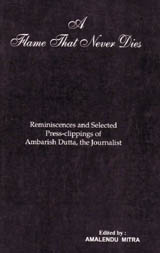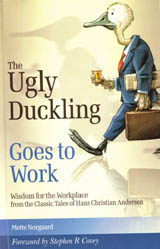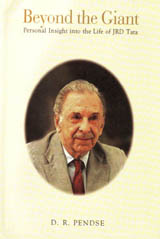|
SHORT TAKES
He died with his boots on
Randeep Wadehra
A Flame That Never Dies
Ed. Amalendu Mitra. Grantha Bharati.
Pages: 146. Rs 100.
 Journalists
are seldom praised by
their peers when alive — barring some honourable exceptions.
Ambarish Dutta is no exception. However, while going through this
volume one sensed sincerity in the accolades showered upon him
posthumously by different personages. For example, The Tribune’s
Editor-in-Chief, H.K. Dua, describes him as a perceptive journalist
having empathy with those getting the short end of the stick. Ambarish
belonged to that category of journalists who give journalism a certain
character which is best described in the words of the late British
journalist C. P. Scott, "Its primary office is the gathering of
news. At the peril of its soul it must see that the supply is not
tainted. Neither in what it gives, nor in what it does not give, nor
in the mode of presentation, must the unclouded face of truth suffer
wrong`85" Journalists
are seldom praised by
their peers when alive — barring some honourable exceptions.
Ambarish Dutta is no exception. However, while going through this
volume one sensed sincerity in the accolades showered upon him
posthumously by different personages. For example, The Tribune’s
Editor-in-Chief, H.K. Dua, describes him as a perceptive journalist
having empathy with those getting the short end of the stick. Ambarish
belonged to that category of journalists who give journalism a certain
character which is best described in the words of the late British
journalist C. P. Scott, "Its primary office is the gathering of
news. At the peril of its soul it must see that the supply is not
tainted. Neither in what it gives, nor in what it does not give, nor
in the mode of presentation, must the unclouded face of truth suffer
wrong`85"
Having developed an
understanding of the country’s social, political and economic
scenario at a young age, he took a conscious decision to take up
journalism as his calling. Whether the medium was print or electronic
he left his mark as a professional although he died young with his
boots on. No wonder Dutta has earned rich tributes from publishers,
journalists, bureaucrats, teachers and other intellectuals.
The Ugly Duckling
Goes To Work
By Mette Norgaard.
Orient Paperbacks.
Pages 189. Rs 295.
 Hans
Christian Andersen (1805-1875) was a Danish author, whose fairytales
have been translated into more than 80 languages and have inspired
plays, ballets, films, and works of sculpture and painting. His first
literary success was A Walk from Holmen’s Canal to the East Point
of the Island of Amager in the Years 1828 and 1829 (1829).
Andersen’s first novel, The Improviser, was well received by
critics, and his first book of fairy tales was published the same
year, i.e., 1835. Andersen’s fantasy tales like The Ugly Duckling,
The Emperor’s New Clothes, The Snow Queen, The Red
Shoes and The Little Mermaid were pioneering in the usage
of sophisticated thought processes and the application of vocabulary
and constructions of spoken language. Hans
Christian Andersen (1805-1875) was a Danish author, whose fairytales
have been translated into more than 80 languages and have inspired
plays, ballets, films, and works of sculpture and painting. His first
literary success was A Walk from Holmen’s Canal to the East Point
of the Island of Amager in the Years 1828 and 1829 (1829).
Andersen’s first novel, The Improviser, was well received by
critics, and his first book of fairy tales was published the same
year, i.e., 1835. Andersen’s fantasy tales like The Ugly Duckling,
The Emperor’s New Clothes, The Snow Queen, The Red
Shoes and The Little Mermaid were pioneering in the usage
of sophisticated thought processes and the application of vocabulary
and constructions of spoken language.
Norgaard has
reinterpreted some of the more famous fairytales using them as
parables for modern day workplace. For example, The Emperor’s New
Clothes satirizes the underlings’ tendency to please their boss
even by praising his stupidity; this desire to fit into other peoples’
agenda diminishes one’s self. The Ugly Duckling underscores
the importance of the process of suffering and humiliations, which
helps build one’s ultimate persona. The other tales too are in
similar vein; the interpretations are both enlightening and absorbing.
Beyond The Giant
By D.R. Pendse.
National Book Trust.
Pages ix+280. Rs 75.
 Jehangir
Ratanji Dadabhoy Tata (July 29, 1904 – November 29, 1993) was a
pioneer aviator and doyen of Indian industry. His contributions to
India’s industrial development and corporate thought have been so
valuable and enduring that he was awarded India’s highest civilian
award, the Bharat Ratna in 1992. Jehangir
Ratanji Dadabhoy Tata (July 29, 1904 – November 29, 1993) was a
pioneer aviator and doyen of Indian industry. His contributions to
India’s industrial development and corporate thought have been so
valuable and enduring that he was awarded India’s highest civilian
award, the Bharat Ratna in 1992.
The Tata-Birla Plan,
also known as the Bombay Plan, is now considered a forerunner of
planned economic development. His corporate philosophy, "What’s
not good for India is not good for Tatas" is an antithesis of the
slogan, "What’s good for General Motors is good for the United
States." No wonder his pioneering efforts helped build a
corporate empire that straddled steel industry, hydro-electric
projects, automobiles, hospitality, chemicals, cosmetics and various
R&D as well as educational institutions. And, yet, the man lived a
frugal life.
This book acquaints us
with JRD’s qualities of head and heart, his sense of humour, his
sophistication and perfectionist approach to even the most ordinary
task like stapling a sheaf of papers! You’ll enjoy reading this one.
|